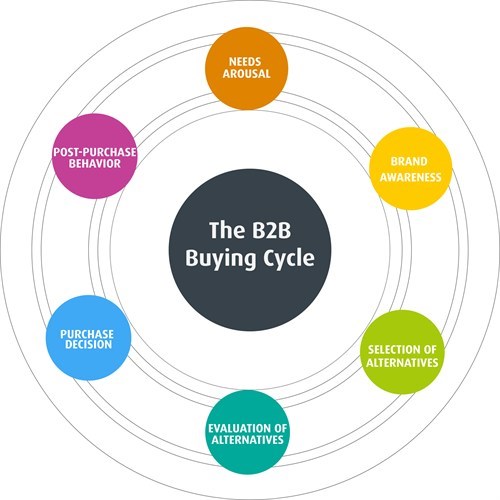The power of storytelling in B2B marketing
16 May 2013
The Power of Storytelling in B2B Marketing
All purchasers follow the same decision-making process, whether they are buying a cheeseburger or enterprise-level software. The process begins with the awareness that there is a need, and is followed by a series of steps that help the buyer to evaluate how their need can be addressed. Once the purchase decision is made, the cycle continues with the evaluation of that decision, and then it all starts again.

All purchasing decisions are motivated by a combination of rational and emotional triggers. For consumers, the emotional triggers may outweigh the rational ones (which explains a lot of sports cars on the road.) For B2B buyers, however, the rational triggers hold much more importance.
Rational
- Purchases made for some purpose other than personal consumption
- Purchases made according to precise technical specification based on product expertise
- Products are often complex; classified based on how organizational customers use them
- Buying an outcome
Emotional
- Decisions frequently made by several people
- May engage in a lengthy decision process
- Still human. Perceive the product on their own terms.
- Talk more about importance of emotional triggers for this audience.
Turning customers into heroes
Marketing comes down to quality storytelling, and the arc of your story should be tailored to your audience and their buying triggers. Your customers are characters in your story, and the heroes, villains and tension sell the story and make it interesting.
A great example of how storytelling influences purchasing decisions is the Significant Objects Project. In this social experiment, a group of writers invented a story about an object and sold it on eBay.

Read this horse's story here.
The result? Consumers paid $76 for a shot glass, $52 for an oven mitt and $50 for a jar of marbles, simply because each item came with a unique tale.
The common thread for all sales and marketing is to create stories and narratives that your customers can relate to. These stories will vary from one product or service to another, and remembering that your customer wants to be the hero in the story can help marketers to tailor their content to have the most resonance.
While consumers may purchase a story, B2B buyers are purchasing an outcome.
How can your product or service story appeal to the rational buyer? Here are a few ideas:
- Efficient or increased profits
- Durability
- Accuracy
- Labor-saving
- Simple operation
- Availability
- Good workmanship
- Low maintenance
- Perceived product superiority

